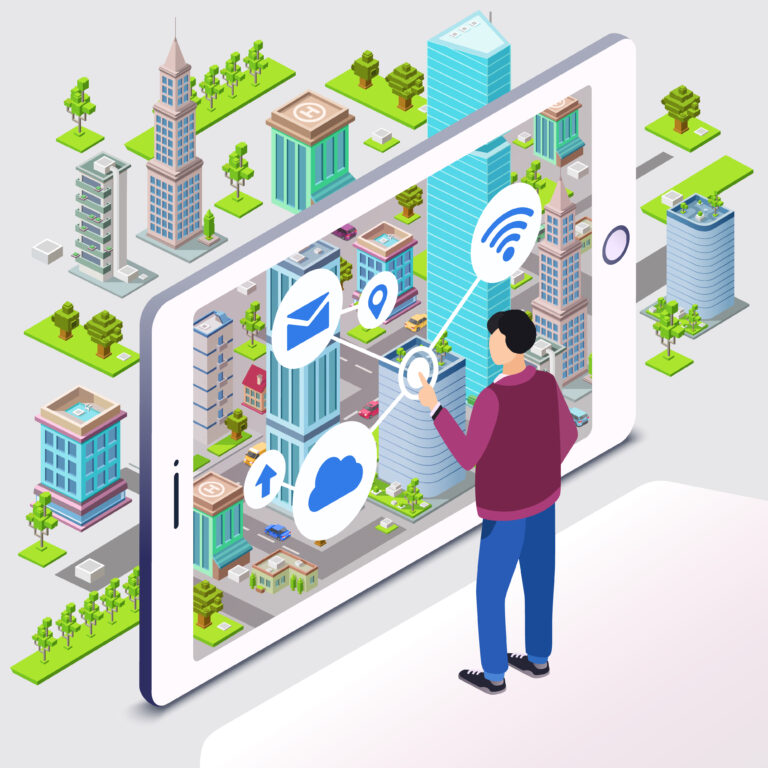How Technology is Revolutionizing the Travel Industry
The travel industry has undergone a significant transformation thanks to the continuous advancements in technology. From planning and booking trips to enhancing the travel experience, technology is revolutionizing every aspect of travel. Let’s explore how technology is changing the travel industry and what it means for travelers and businesses alike.
Seamless Planning and Booking
Technology has simplified the travel planning and booking process, making it more convenient and efficient for travelers.
Online Travel Agencies (OTAs)
Online travel agencies like Expedia, Booking.com, and Airbnb offer a one-stop solution for travelers to book flights, accommodations, and activities. These platforms provide a vast array of options, allowing travelers to compare prices, read reviews, and make reservations with ease. The convenience of OTAs saves time and effort, making travel planning a hassle-free experience.
Mobile Apps
Mobile apps have further enhanced the booking process by allowing travelers to make reservations on the go. Apps like Skyscanner, Hopper, and TripIt provide real-time information on flights, accommodations, and travel itineraries. Push notifications alert travelers to price drops, gate changes, and travel updates, ensuring a smooth and stress-free journey.
Personalized Travel Experiences
Technology is enabling personalized travel experiences by leveraging data and artificial intelligence (AI).
AI-Powered Recommendations
AI-powered platforms like Google Travel and Kayak analyze user preferences, search history, and travel patterns to provide personalized recommendations for flights, hotels, and activities. These tailored suggestions help travelers discover unique experiences that match their interests and budget, enhancing their overall travel experience.
Virtual Travel Assistants
Virtual travel assistants like Siri, Alexa, and Google Assistant offer personalized assistance by answering travel-related questions, providing weather updates, and suggesting local attractions. These AI-driven assistants make it easier for travelers to access information and plan their trips efficiently.
Enhanced Customer Service
Technology is improving customer service in the travel industry by providing instant support and solutions.
Chatbots
Chatbots powered by AI are transforming customer service by offering instant assistance to travelers. Airlines, hotels, and travel agencies use chatbots to answer frequently asked questions, handle bookings, and provide real-time updates. Chatbots like those used by KLM and Marriott enhance customer satisfaction by providing quick and efficient support.
Real-Time Communication
Communication platforms like WhatsApp, Facebook Messenger, and WeChat enable travelers to communicate with travel providers in real-time. These platforms offer a convenient way to address issues, make inquiries, and receive updates, ensuring a smooth travel experience. Real-time communication fosters better relationships between travelers and service providers.
Smart Travel Solutions
Smart technology is enhancing the travel experience by providing innovative solutions for convenience and safety.
Smart Airports
Smart airports are utilizing technology to streamline operations and improve the passenger experience. Features like self-check-in kiosks, biometric boarding, and automated baggage handling reduce wait times and enhance efficiency. Airports like Changi Airport in Singapore and Hamad International Airport in Qatar are leading the way in implementing smart technologies.
IoT and Connectivity
The Internet of Things (IoT) is connecting devices and systems to provide a seamless travel experience. Smart luggage with GPS tracking, such as those from companies like Away and Bluesmart, allows travelers to monitor their bags in real-time. IoT-enabled devices in hotels, like smart thermostats and keyless entry systems, offer convenience and personalized comfort to guests.
Immersive Travel Experiences
Technology is creating immersive travel experiences through virtual and augmented reality (VR and AR).
Virtual Reality Tours
Virtual reality tours allow travelers to explore destinations and attractions from the comfort of their homes. Platforms like Google Earth VR and VRBO offer 360-degree virtual tours of cities, landmarks, and vacation rentals. These immersive experiences help travelers make informed decisions and get a preview of their destinations.
Augmented Reality Navigation
Augmented reality navigation apps like Google Maps AR and Citymapper provide real-time directions and information overlaid on the real world. AR navigation helps travelers navigate unfamiliar cities, find local attractions, and discover hidden gems, enhancing their travel experience.
Sustainable Travel
Technology is promoting sustainable travel by providing eco-friendly solutions and raising awareness.
Carbon Offset Programs
Carbon offset programs integrated into booking platforms allow travelers to offset their carbon emissions by supporting environmental projects. Companies like TripAdvisor and Skyscanner offer options for travelers to contribute to reforestation, renewable energy, and conservation efforts. These programs encourage responsible travel and reduce the environmental impact of tourism.
Eco-Friendly Accommodations
Booking platforms now highlight eco-friendly accommodations, making it easier for travelers to choose sustainable options. Websites like EcoHotels.com and Green Pearls provide information on environmentally conscious hotels and resorts, promoting sustainable tourism practices.
Future Innovations
The travel industry continues to evolve with future innovations that promise to further revolutionize the way we travel.
Hyperloop and Supersonic Travel
Emerging technologies like Hyperloop and supersonic travel are set to transform transportation by significantly reducing travel times. Companies like Virgin Hyperloop and Boom Supersonic are developing high-speed travel solutions that will make long-distance travel faster and more efficient.
Autonomous Vehicles
Autonomous vehicles are poised to change the way we navigate destinations. Self-driving cars and shuttles, such as those being developed by Tesla and Waymo, will provide convenient and safe transportation options for travelers, reducing the need for car rentals and traditional taxis.
Conclusion
Technology is revolutionizing the travel industry by enhancing the planning and booking process, personalizing travel experiences, improving customer service, providing smart travel solutions, creating immersive experiences, promoting sustainable travel, and paving the way for future innovations. These advancements are making travel more convenient, enjoyable, and eco-friendly for everyone.
By embracing these technological innovations, travelers can look forward to a future where exploring the world is easier, safer, and more exciting than ever before. Whether you’re a seasoned globetrotter or planning your first trip, technology is your gateway to a better travel experience.






